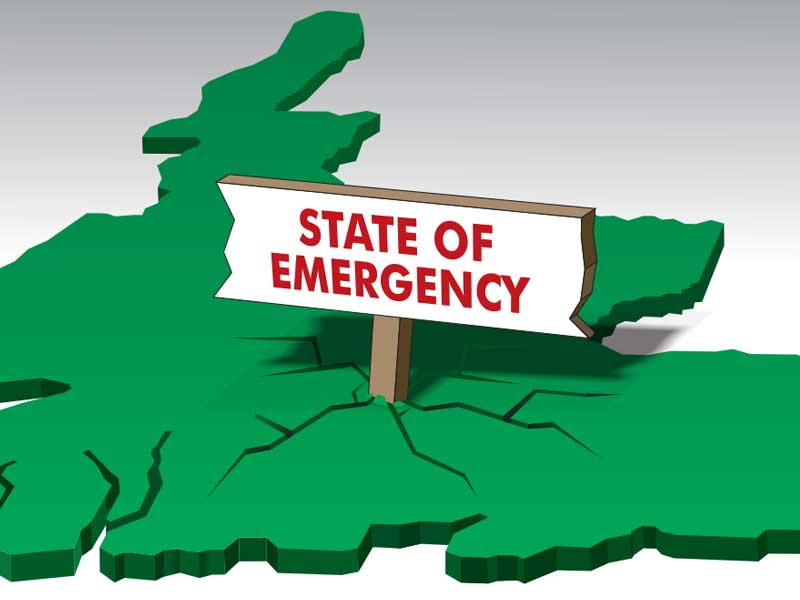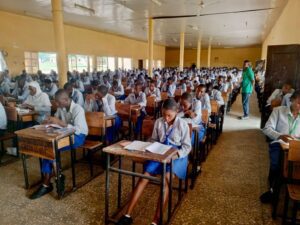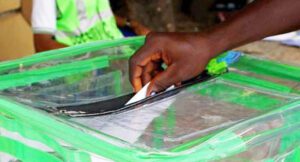
Unimagined emergencies: Edo vs Rivers
In Nigeria, the term “State of Emergency” is often associated with political crises, security breakdowns, or natural disasters. It signifies an urgent intervention to restore order and stability. Yet, as recent events unfold, the interpretation of what constitutes an emergency seems to be shifting. Two states—Edo and Rivers—have seen vastly different approaches to governance under this banner, raising fundamental questions about leadership priorities.
In Edo State, Governor Monday Okpebholo has declared a State of Emergency on public education, an issue that directly affects thousands of students. His visit to schools in Ikpoba-Okha and Egor revealed an educational sector crippled by infrastructural decay. Classrooms were in disrepair, roads leading to schools were washed away by erosion, and students were struggling in an environment wholly unfit for learning. In response, he pledged immediate renovations, beginning with Army Day Secondary School and Evbareke Secondary School, and committed to improving the state’s education sector.
This approach represents a practical, people-focused response to a real crisis—one that has been neglected for years. Education is not just an investment in the future; it is the bedrock of a society that aspires to progress. For many Nigerians, this declaration of a State of Emergency is a long-overdue recognition of a crisis that has silently persisted. Okpebholo’s hands-on approach signals a commitment to governance beyond politics, an approach that prioritises the well-being of citizens over political calculations.
By contrast, in Rivers State, the federal government’s intervention has raised pressing constitutional and democratic concerns. Governor Siminalayi Fubara, his deputy, and the state’s legislative assembly were ousted over a political dispute. The justification has been framed as a move to restore peace in the state, following months of tension between rival political factions. However, critics argue that the federal action sets a dangerous precedent, as it overrides democratic processes and weakens state autonomy.
Unlike the situation in Edo, where the emergency directly affects children’s education, community development, and future opportunities, the Rivers crisis appears more rooted in political power struggles. The question, then, is whether the federal government’s response to Rivers is truly about governance or a selective use of emergency powers to influence state politics.
Nigeria faces numerous challenges that warrant urgent action. Education, healthcare, security, and economic development remain critical areas requiring sustained governmental intervention. The worsening state of public services has a direct impact on millions of citizens, often in ways that do not make daily headlines but profoundly shape the country’s trajectory. If a State of Emergency is to be declared anywhere, should it not be in these sectors that determine the quality of life for Nigerians?
While the federal government is within its rights to intervene in cases of serious political instability, the manner and timing of the Rivers intervention raise questions about selective urgency. The Constitution provides frameworks for conflict resolution without overriding the democratic will of the people. At the very least, there should be greater transparency in the decision-making process, ensuring that political interventions do not come at the expense of democratic norms.
In contrast, Edo’s education emergency is a reminder of the kind of leadership Nigeria desperately needs—one that prioritises real problems over political battles. That approach suggests that leadership should be about identifying critical issues and taking decisive action to solve them, rather than reacting to political pressures.
At its core, governance is about priorities. What a government chooses to focus on—whether political stability, education, or economic reform—signals its commitment to national development. The juxtaposition of Edo’s education emergency and Rivers’ political crisis serves as a lesson in leadership.
If the federal government can swiftly intervene in political conflicts, should it not demonstrate equal urgency in tackling challenges that directly affect Nigerians’ daily lives? Should Nigeria’s leaders not be as passionate about fixing schools, hospitals, and roads as they are about settling political disputes?
The concept of a State of Emergency should not be reduced to a political tool, selectively applied for strategic advantage. Instead, it should be a genuine call to action—an acknowledgment of an issue so severe that immediate intervention is required for the greater good.
The Edo and Rivers cases present a contrast between governance in action and governance in expediency. Nigeria must choose which path it wants to follow.




